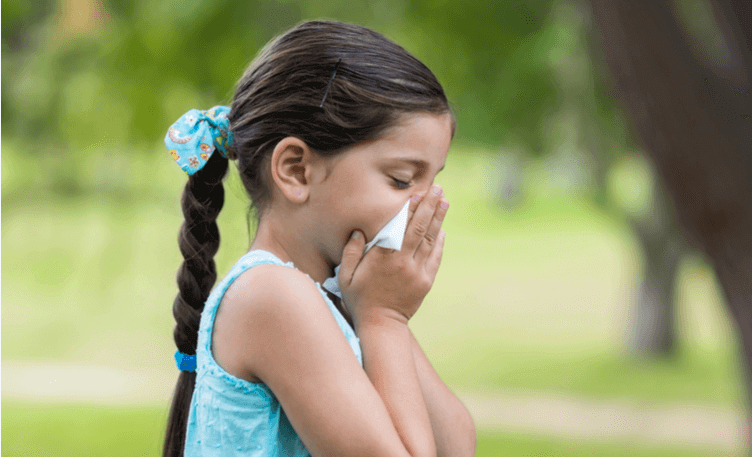6 Ways to Help Your Child Deal with Food Allergies

Parenting can be tough. Especially when you have to witness your children struggle with food allergies. At one moment, they might seem healthy, happy, and enjoying their food. And the next, they might develop a rash on their skin or end up having breathing difficulties.
Food allergies are highly prevalent amongst toddlers and are less common in adults mainly because a child’s immune system is not fully developed. These allergies can invite a lot of trouble for your little one. Read on to understand how you can make your child less sensitive towards common allergens.
Identify Common Allergens
One of the biggest issues with food allergies is that you cannot know what caused it until the symptoms show up. In such instances, it is important to be aware of common allergens that can evoke hypersensitivity.
The National Institute of Allergy and Infectious Diseases cites peanuts, eggs, milk, tree nuts, wheat, and soy as common allergens. Out of these, your child can outgrow egg, soy, and milk allergies. However, body’s aversion towards fish such as shellfish, and tree nuts (including but not limited to) walnuts, almonds, chestnuts, cashews, pistachios etc. tend to last for a lifetime. Allergic reactions are not confined to the food items mentioned above. So, take your child for allergy testing and request your doctor to develop a food plan based on the results.

Choose Breastfeeding over Milk Formulas
When it comes to providing nourishment during your child’s early years, nothing works like breast milk. It also helps prevent lactose intolerance and early eczema. Most paediatricians recommend exclusive breastfeeding for at least 4 to 6 months. However, if the mother is not able to breastfeed, it is recommended that they feed their babies hydrolysed infant formulas instead of cow milk formulas.
Give Gradual Exposure to Foods
Exposing your child to different foods helps to strengthen their immune systems. Start with single-ingredient infant foods (preferably, fruits and vegetables) like bananas, apples, squashed carrots, green veggies. Introduce the above-mentioned foods at an interval of 3 to 5 days and watch out for the signs of allergic reactions (if any). Consult the doctor in case you witness one or more of the following symptoms:
- Runny nose
- Rashes
- Diarrhoea
- Shortness of breath
- Swallowing trouble
- Nausea & Vomiting
- Wheezing
Be Cautious When Dining Out

Occasional dine-outs are a great way of exposing children to new foods and experiences. Also, they are a better option than take-away food packs and drive-through food boxes. But if your child has food allergies, you need to take certain measures. Here’s what you can do:
- Get a menu from the restaurant in advance and inform the restaurant staff/chef about the food allergy that your kid suffers from. This makes them aware of the ingredients they can use for preparing their food.
- Try not to go for a buffet-style dinner as cross-contamination of foods is likely to happen when the same utensils are used to store different dishes.
- Keep away from fried food as the restaurant owners might use the same oil for frying different foods.
Educate the Peers
Think of the scenarios when the child is not around parents. It could be at home, with caregivers, or at school, with teachers. For situations like these, you must keep the peers, caregivers, and teachers informed about the food allergies your child is dealing with. Remember, even a small amount of these foods can jeopardise your child’s life. So, prepare a list of food items that your child must avoid and share it with the people who are likely to be around your children. If your child can take the responsibility of avoiding allergic foods, it works the best.
Seek Medical Help
Even if you have taken strict measures to protect your child from food allergens, it’s difficult to predict their accidental consumption. To avoid it from happening, make your child wear an emergency medical id (a card or a bracelet) that mentions food allergens and the steps to follow if there is an accidental consumption. In case of an emergency, keep an Emergency Care Plan handy with you. If/whenever you see the first sign of a reaction, give the prescribed medication to your child. Don’t hesitate to take your child to an emergency facility if the need arises.


